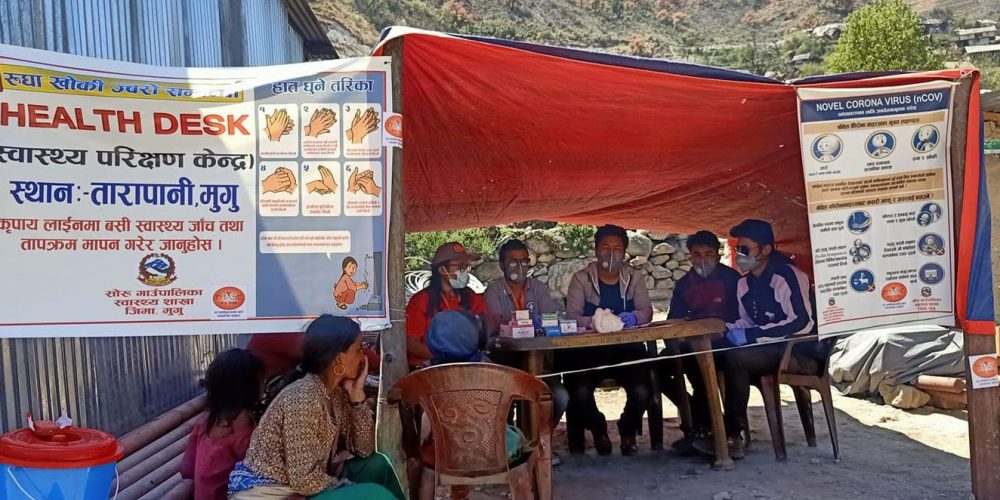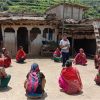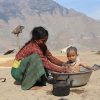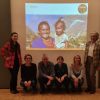Nepal has now been in lockdown since March 23, which helped keep the number of cases at a low 100+. The World Health Organisation WHO currently still categorises the situation in Nepal as “sporadic cases”. This week, the lockdown was again extended until May 18; international flights are currently suspended until May 31. As expected, the identified cases cluster in districts along the Indian border, where many migrant workers have returned to the country, and of course Kathmandu – see the map below.

So far, no cases have been identified in the remote PHASE project regions, even though some of them have conducted targeted screenings.
As reported, PHASE Nepal already had prepared for the pandemic before the lockdown and closely cooperates with local health authorities, supporting them directly in the villages, for instance with health checkpoints, and with raising awareness among the local people. Health care – prenatal checkups, family planning, first aid after accidents – obviously is ongoing. Since the lockdown began, PHASE health staff have supported 41 deliveries; 4 mothers had complications and had to be evacuated to the nearest hospital – all of them, and their babies, are fine because of the ANMs taking action. After accidents like burns and falls, too, some victims had to be transported for further treatment to a secondary healthcare institution.

In the context of the Urban Health programme in Kathmandu, which is supported by the City of Vienna via PHASE Austria, and which focuses on people living with disability, 70 families including people living with disabilities were provided support with food and medical materials like catheters. In particular for day labourers and mobile traders in the cities, the lockdown has led to an extremely difficult situation: they lack financial and food reserves, and while the government does provide some support, many of these people, who are extremely poor and disadvantaged, and often illiterate, find it hard to access these programmes.
In spite of this hardship, the measures seem justifiable in a country like Nepal with an extremely weak healthcare system. We are hoping the situation will remain stable!







